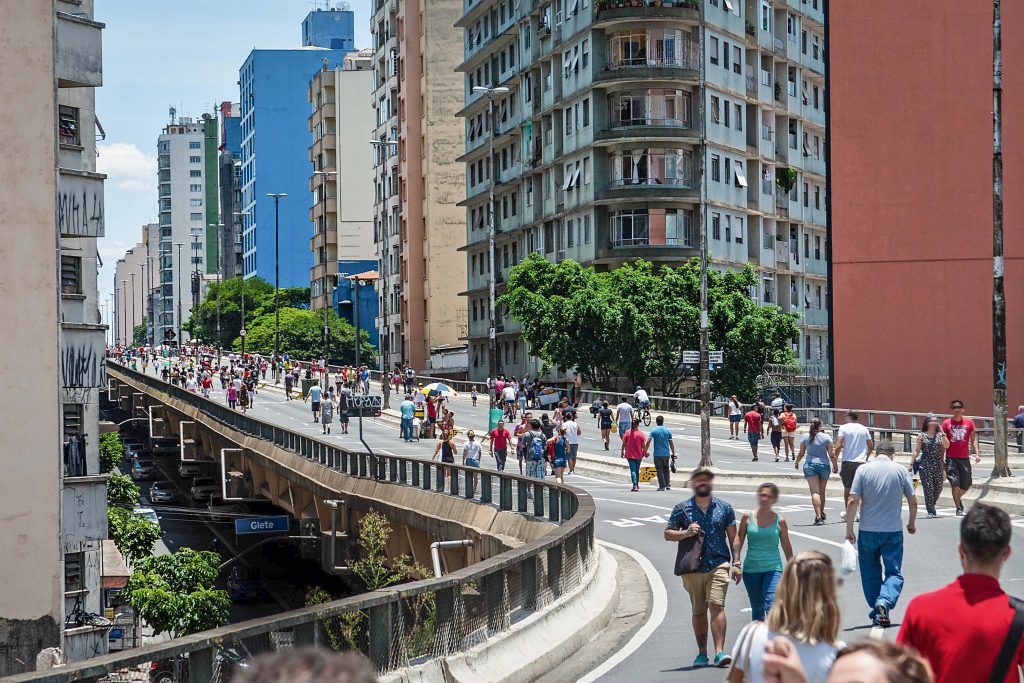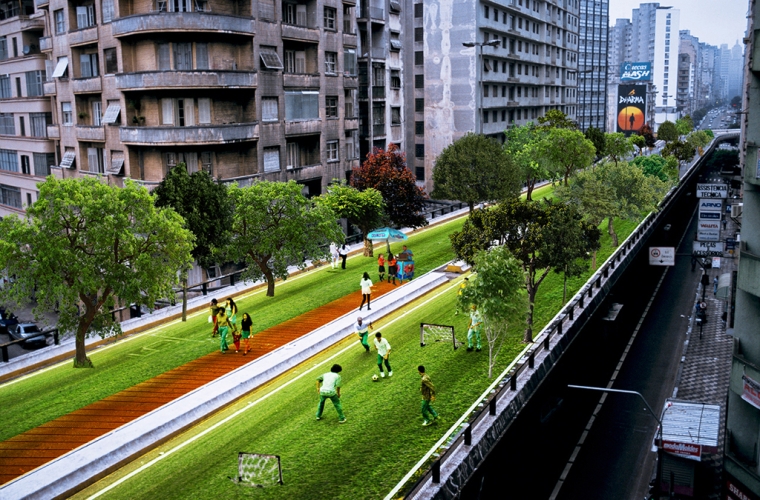SÃO PAULO, BRAZIL – The Constitution, Justice, and Participative Legislation Committee (CCJ) of São Paulo City approved on Wednesday, October 23rd, an opinion on the legitimacy of Bill 98/2018, proposed by City Councilors Caio Miranda Carneiro and Mario Covas Neto.

The bill authorizes the Executive Power to carry out the dismantling of the Elevated Highway João Goulart, popularly known as ‘Minhocão’, located in the central region of the city. In addition to its removal, the proposal also provides for the renovation of the surrounding urban areas.
On the same day, the São Paulo Court of Justice overturned an injunction suspending municipal law 16,833/18, which provides for the creation of the Minhocão Park, a proposal that deviates from the removal of the elevated area.
The implementation of the first stretch of the Minhocão Park (900 meters) was defined due to its favorable connection with other public leisure venues – Praça Roosevelt, Parque Augusta, Largo do Arouche, and Praça Marechal Deodoro.
The elevated highway passes through a number of iconic public facilities, such as the Mário de Andrade and Monteiro Lobato libraries, the Pacaembu Stadium, the Latin American Memorial and the Santa Casa de Misericórdia Hospital, besides the Marechal Deodoro and Santa Cecília metrô stations.
History
The fate of the João Goulart elevated highway has been the subject of discussion since the 1970s when restrictions on traffic at night were introduced.

The impact that the result of this discussion would have on the daily lives of a large number of citizens led the Strategic Master Plan, approved in 2014, to address this issue, providing for a specific law to be drafted to determine the progressive restriction to individual motorized transport in the elevated highway, then named after former military president Costa e Silva, including time limits until its complete deactivation as a traffic route, or transformation into a park.
The determination was met with the approval of Municipal Law No. 16,833, of February 7th, 2018, which established the deactivation of the elevated highway as a vehicle circulation route, the stimulation of cultural and sports activities in periods of interdiction to traffic and the obligation to propose the partial or total transformation of the elevated highway into a park through a Urban Intervention Project, to be enacted by Law or Decree.
This law also authorizes the Executive to carry out pilot projects to assess the impacts, during the process of disabling the structure. The Urban Intervention Project comprises a set of technical studies and public discussion of projects in proposing urban interventions.

